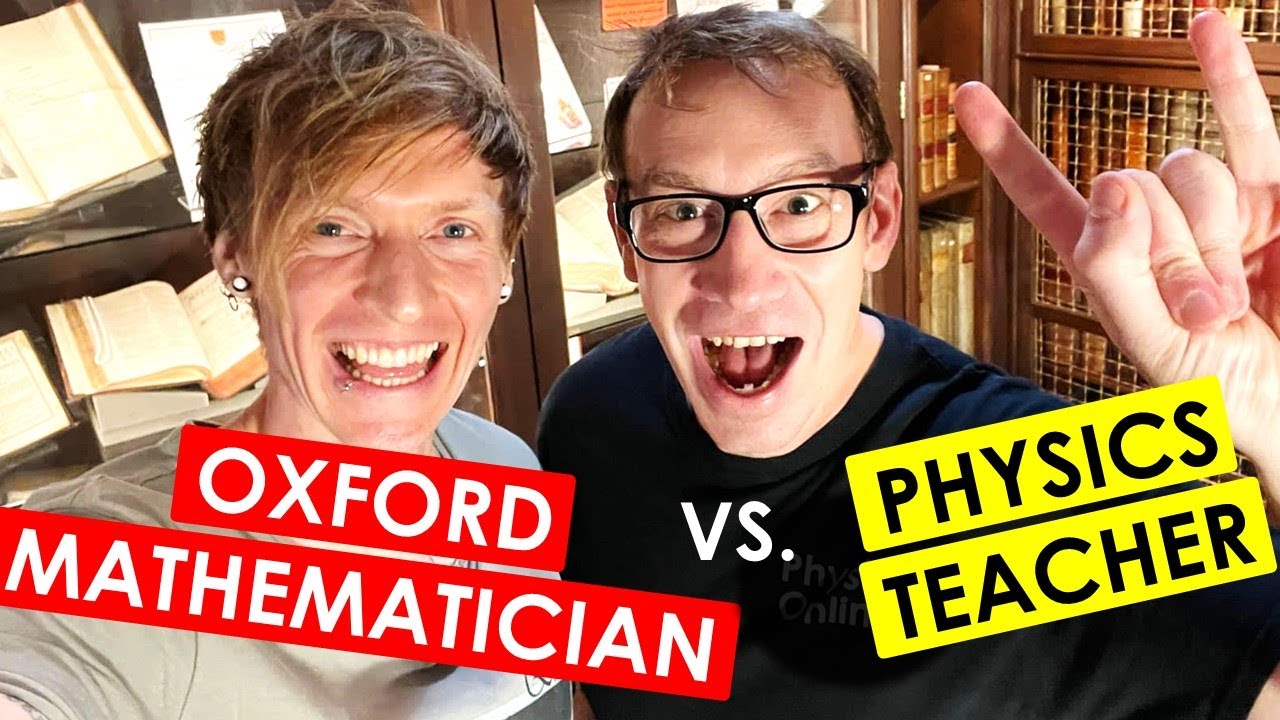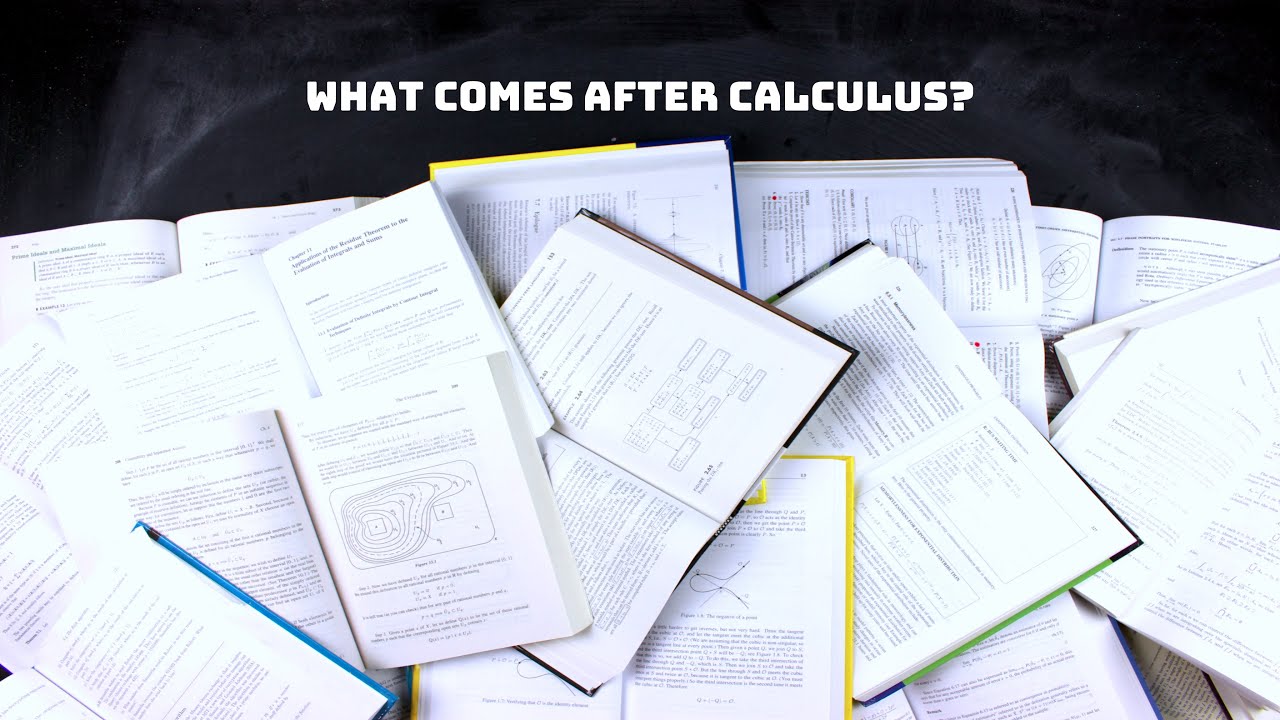The World's Best Mathematician (*) - Numberphile
TLDRIn this engaging transcript, a mathematician reminisces about their childhood fascination with numbers and mathematics, recalling a jam sandwich breakfast and their dislike for subjective questions. They discuss the difference between math competitions and research, the mentors who guided them, and their unique educational journey. The conversation also touches on their experience at the International Mathematical Olympiad, their interactions with renowned mathematicians like Terence Tao and Paul Erdős, and their collaborative approach to tackling complex problems. The speaker emphasizes the importance of both solitary and collaborative work in mathematics, highlighting the need for diverse approaches and the unpredictable nature of breakthroughs in the field.
Takeaways
- 🍞 The speaker had a jam sandwich for breakfast, indicating a personal preference or a casual start to the conversation.
- 🧩 From a young age, the speaker was fascinated with mathematics, numbers, and patterns, showing an early inclination towards logic and problem-solving.
- 📚 The speaker enjoyed working on math workbooks for fun and had a supportive environment at home, including a mother who was a high school math teacher.
- 🏆 The speaker participated in math competitions and found research mathematics to be a different and more fulfilling experience compared to problem-solving in workbooks.
- 👵 The speaker's grandmother played a role in their early interest in numbers, as she used to clean windows with detergent in the form of numbers.
- 🎓 The speaker had access to mentorship from a retired math professor and enjoyed discussing recreational math problems, which sparked their interest in practical applications of math.
- 🏅 The speaker mentions Terence Tao, a renowned mathematician, and his early achievements, highlighting the importance of nurturing talent from a young age.
- 🤔 The speaker reflects on a missed problem at the Olympiad, showing a persistent desire to understand and solve complex problems, even years after the event.
- 🤝 The speaker values collaboration in mathematics, finding it rewarding to work with co-authors and discuss problems at a high level.
- 🏔 The speaker draws an analogy between problem-solving in mathematics and climbing a cliff, emphasizing the importance of waiting for the right tools and breakthroughs.
- 🌐 The speaker appreciates the diversity of thought and approach in mathematics, recognizing the value of both solitary and collaborative work.
Q & A
What did the speaker have for breakfast?
-The speaker had a jam sandwich for breakfast.
What was the speaker's earliest memory related to mathematics?
-The speaker's earliest memory related to mathematics was when they were two years old, insisting that their grandma put numbers on the windows while cleaning them.
How did the speaker's mother contribute to their interest in mathematics?
-The speaker's mother, a former high school math teacher, helped by talking numbers with the speaker when they were a child.
What was the role of the retired math professor in Adelaide in the speaker's life?
-The retired math professor in Adelaide served as a mentor to the speaker, discussing recreational math problems and sharing stories about using math during World War Two.
How did the speaker's experience in university differ from a regular high school experience?
-The speaker was around older people with similar mathematical backgrounds in university, which made them feel at home and missed out on the regular high school social events.
What was the significance of the speaker's encounter with Terence Tao at a math competition?
-Terence Tao, who only got one out of seven questions right at the competition, impressed the speaker because he was only 13 years old at the time and later became a renowned mathematician.
How did the speaker feel about not solving a particular problem at the Olympiad?
-The speaker was more obsessed with knowing the answer than winning and felt a bit angry at themselves for not getting it right, but it motivated them to learn more.
What was the significance of the photograph with Paul Erdős?
-The photograph with Paul Erdős was significant because it represented a memorable interaction where the speaker felt treated as an equal and was later helped by Erdős with a recommendation for Princeton.
How does the speaker approach mathematical problems involving inequalities?
-The speaker uses metaphors like an economics problem to think about inequalities, comparing the process to managing a budget and making good deals.
What are the speaker's thoughts on working alone versus collaborating in mathematics?
-The speaker appreciates both approaches, acknowledging the need for deep experts working on narrow problems and for those who connect ideas across different fields.
What is the speaker's view on the unpredictability of breakthroughs in mathematics?
-The speaker believes that breakthroughs can happen unexpectedly, and when they do, it can make previously impossible problems suddenly feasible.
Outlines
😀 Childhood Passion for Mathematics
The speaker reminisces about their love for mathematics from a young age, including memories of their grandmother cleaning windows and their fascination with numbers and patterns. They mention enjoying math workbooks as a child and the stark contrast between solving textbook problems and the more complex, long-term challenges of mathematical research. The speaker also acknowledges the influence of their mother, a former high school math teacher, and the mentorship of a retired math professor who introduced them to recreational math problems and real-world applications during World War Two. The paragraph concludes with the speaker's experience at a math competition, where despite not solving a particular problem, they were more driven by curiosity than competitiveness.
🌟 Early Mathematical Achievements and Mentorship
In this paragraph, the speaker discusses their early mathematical achievements, including being accelerated in their studies and attending university at a young age. They mention the social aspects of their education, feeling at home among older peers who shared similar mathematical interests. The speaker also reflects on their experience at the International Mathematical Olympiad, where they did not solve a particular problem but were later inspired to learn the solution from a Romanian competitor. The influence of renowned mathematician Terence Tao is noted, as well as the speaker's encounter with Paul Erdős, who treated them as an equal and later wrote a letter of recommendation for their admission to Princeton. The speaker also touches on their approach to learning about historical mathematicians and the process of visualizing mathematical problems.
🤔 The Nature of Mathematical Collaboration and Solitude
The speaker delves into the collaborative aspects of mathematical work, emphasizing the joy and benefits of working with co-authors who understand and contribute to the problem-solving process. They contrast this with the solitary work of mathematicians like Andrew Wiles, who dedicated years to focused research on a single problem. The speaker appreciates the diversity in mathematical approaches and philosophies, recognizing the importance of both deep expertise and the ability to connect ideas across different fields. The paragraph concludes with a metaphor comparing mathematical problem-solving to climbing a cliff, highlighting the necessity of waiting for the right tools or breakthroughs to tackle seemingly insurmountable problems.
Mindmap
Keywords
💡mathematics
💡research mathematics
💡subjective
💡math workbooks
💡mentors
💡accelerated learning
💡Olympiad
💡Terence Tao
💡mathematical visualization
💡joint work
💡Andrew Wiles
💡Kakeya problem
Highlights
The speaker enjoyed a jam sandwich for breakfast.
A strong childhood interest in mathematics and patterns was evident from the age of two.
Preferential engagement with math workbooks for fun and learning.
The distinction between math competitions and research mathematics was highlighted.
The speaker's mother, a former high school math teacher, influenced their early mathematical development.
Mentorship from a retired maths professor introduced recreational maths and its practical applications.
The speaker's rapid academic progression, including attending university at a young age.
Missing out on typical high school experiences but finding a sense of belonging in a university setting.
Terence Tao's early achievement in mathematics and the speaker's interaction with him.
The speaker's recollection of not solving a particular Olympiad question and the subsequent learning experience.
A photograph with Erdős and the impact of his mentorship on the speaker's career.
The speaker's approach to mathematics involves a combination of thinking, speaking out loud, and working on a board.
The speaker's preference for using metaphors and real-world analogies to understand mathematical problems.
Admitting weaknesses in algebra and topology and translating these areas into more comfortable mathematical domains.
The importance and enjoyment of joint work in mathematics, as opposed to solitary work.
Andrew Wiles' solitary work in contrast to the speaker's collaborative approach, and the value of both methods.
The unpredictability of progress in mathematics and the necessity of breakthroughs to solve difficult problems.
Transcripts
Browse More Related Video

Oxford Mathematician Challenges Physics Teacher to A Level Maths Exam

Why Do People Hate Mathematics? Efim Zelmanov (Fields Medal 1994)

He won 4 gold medals in the International Math Olympiads: tips and tricks

How to Understand Math Intuitively?

The genius of Edward Witten | Edward Frenkel and Lex Fridman

WHAT COMES AFTER CALCULUS? : A Look at My Higher Level Math Courses (I Took 22 of them).
5.0 / 5 (0 votes)
Thanks for rating: